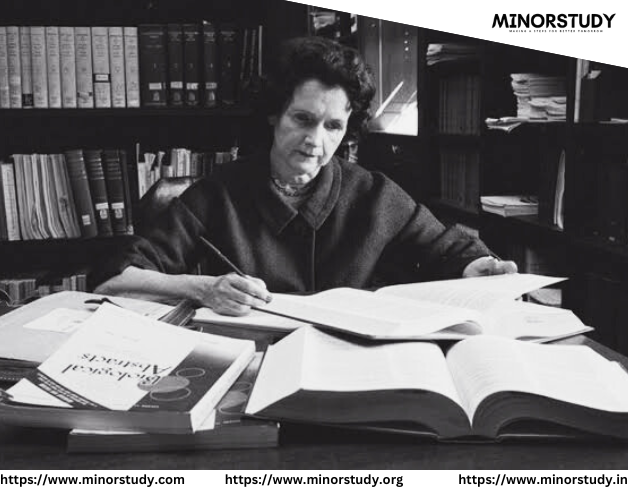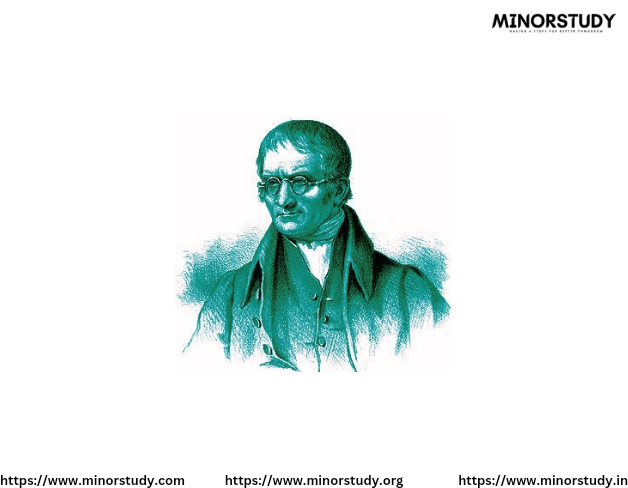Rachel Carson
- Minorstudy Web blogs
- Dec 6, 2024
- 3 min read

Rachel Carson (May 27, 1907 – April 14, 1964) was an American marine biologist, conservationist, and author whose work is credited with advancing the global environmental movement. Her landmark book, Silent Spring (1962), exposed the dangers of widespread pesticide use and raised awareness about the environmental impact of human activity, ultimately leading to a shift in how society approached ecological protection and the regulation of chemicals.
Early Life and Education:
Born: May 27, 1907, in Springdale, Pennsylvania, USA.
Carson had an early interest in nature and writing, which led her to study biology at Chatham University (then Pennsylvania College for Women) and later, Johns Hopkins University, where she earned a master's degree in zoology.
She worked as a writer and editor for the U.S. Fish and Wildlife Service from 1949 until 1952, where she wrote about conservation and environmental issues.
Scientific and Literary Career:
1. Early Works on the Sea:
Carson's first book, Under the Sea-Wind (1941), was a poetic exploration of marine life, focusing on the ecology of the sea and its inhabitants.
Her second book, The Sea Around Us (1951), was a bestseller and won numerous awards, establishing Carson as a respected writer and marine biologist.
The Edge of the Sea (1955), her third book, continued her exploration of marine environments, blending scientific facts with vivid storytelling.
2. Silent Spring (1962):
Silent Spring was Carson’s most influential work, bringing to light the harmful effects of chemical pesticides, particularly DDT, on wildlife, plants, and human health.
The book argued that the indiscriminate use of pesticides disrupted ecosystems, poisoned wildlife, and threatened the environment, especially birds. Its title referred to a future where the song of birds was silenced due to the widespread effects of pesticides.
Silent Spring faced fierce opposition from the chemical industry, but it gained widespread support from the public and scientific community. The book played a pivotal role in the eventual ban on DDT in the U.S. and influenced the development of environmental policies.
Impact and Legacy:
1. Environmental Movement:
Carson’s work helped spark the modern environmental movement and led to increased public awareness about the dangers of pollution and the need for conservation.
Her efforts contributed to the establishment of the Environmental Protection Agency (EPA) in 1970.
2. Recognition and Awards:
Carson received numerous accolades for her work, including the Presidential Medal of Freedom posthumously in 1980.
Silent Spring was awarded the National Book Award in 1963 and continues to be regarded as one of the most influential environmental books of all time.
3. Legacy in Environmental Science:
Carson is considered one of the founders of the environmental science field, and her work has had a lasting influence on environmental policies, particularly regarding the regulation of pesticides and chemical substances.
Her advocacy for the protection of biodiversity and ecosystems helped shape environmental laws and regulations around the world.
Personal Life and Challenges:
Carson faced personal struggles, including the death of her mother and her battle with breast cancer, which she was diagnosed with while writing Silent Spring. Despite her health issues, she continued to advocate for environmental protection until her death.
Her courage in standing up against powerful industries and her commitment to scientific truth despite heavy opposition have made her a symbol of integrity and perseverance in the environmental movement.
Interesting Facts:
Carson’s writing style was known for its lyrical quality, blending scientific accuracy with evocative prose, making complex ecological concepts accessible to the general public.
She was the first woman to become a full-time editor at the U.S. Fish and Wildlife Service.
Silent Spring was initially serialized in The New Yorker before being published as a book.
Quotes:
"In nature, nothing exists alone."
"The human race is challenged more than ever before to demonstrate our mastery, not over nature, but of ourselves."
"Those who contemplate the beauty of the earth find reserves of strength that will endure as long as life lasts."
Significance:
Rachel Carson’s legacy is vast. She helped shift public perception about environmental responsibility and the need for sustainable practices. Through her courageous efforts, she demonstrated how a single voice could inspire global change, and she remains a figurehead for environmental protection, sustainable practices, and the ethical responsibility to safeguard the planet for future generations.











Comments